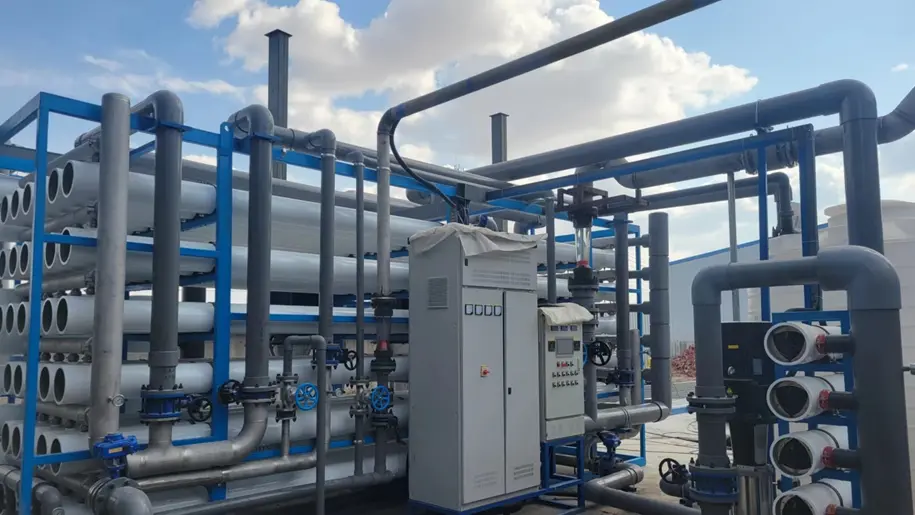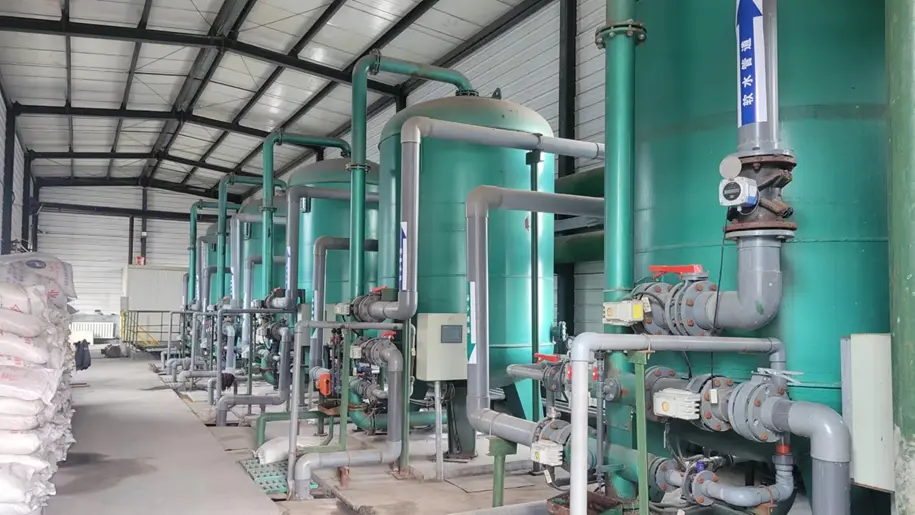Scenario: Enterprise production water treatment line supplying process areas. Capacity is 4800 T/D (≈ 200 m³/h) with automated operation, stable conductivity and scalable pretreatment.
| Country / Site | South Africa / production facility |
|---|---|
| Total Capacity | 4800 T/D (≈200 m³/h), multi-skid layout for maintainability |
| Process Train | Raw water conditioning → multimedia filtration (MMF) → activated carbon (de-chlorination) → softening or antiscalant (per feed) → cartridge filter → RO (8040 brackish) → permeate tank & distribution |
| Materials | RO HP piping SS316; LP piping UPVC/SS; frames SS304; instrumentation rated for industrial duty |
| Contrôles | PLC + HMI; auto start/stop & permeate flush; interlocks with tanks and feed pumps; flow/ΔP/conductivity trending; alarm management |
Design Basis & Targets
- Feed envelope: TDS typically a few hundred mg/L; chlorine/chloramine removed by carbon or sodium metabisulfite as required.
- RO recovery: 65–75% (set by scaling indices and flux), staged arrays to balance pressure and footprint.
- Permeate quality: typically ≤ 20–50 µS/cm for process water (polishing options available when lower is required).
- SDI control: cartridge/pretreatment sized to keep SDI ≤ 3 for stable RO operation.
- Ops readiness: dedicated CIP ports, safe-mix tanks, and written SOPs for acid/alkali cleaning.
Process Highlights
- Pretreatment engineered to handle seasonal turbidity/TDS swings and protect RO membranes.
- RO trains with VFD high-pressure pumps, energy-efficient flux, and permeate/standby flush logic.
- Chemical program: antiscalant, optional dechlorination, and biocide strategy aligned with membrane OEM limits.
- Maintenance: clear access to valves and instruments; spare-parts and preventive-maintenance lists provided.
Commissioning & Handover
- Factory FAT → on-site SAT → 72-hour performance run with data capture.
- Operator training on daily checks, CIP triggers (ΔP/flux/conductivity), and safety procedures.
- Deliverables: P&ID, layout drawings, I/O list, SOPs, and recommended PM schedule.


